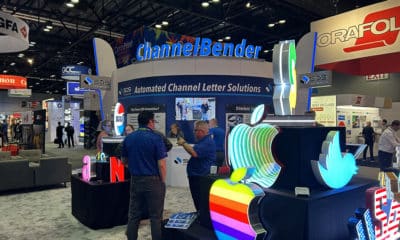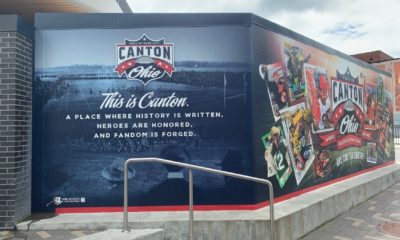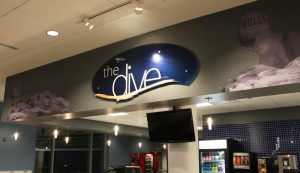In the January issue, ST will feature an article that focuses on various sign companies’ plans for growth as economic conditions tentatively inch out of recession. This article is a preview of that coverage.
Gene Golden operates Gettysburg, PA’s Gettysburg Signs with his wife, Debi. The shop fabricates monument signs, wayfinding and digital graphics, among other sign types. Much of the Gettysburg Signs’ business entails serving businesses geared towards the town’s vibrant tourist traffic attracted by the site of a pivotal Civil War battle.
Golden said he began noticing a marked shift in the shop’s customer base. “The builders and contractors who’d long been a big part of our clientele began tightening their belts. We were careful not to extend too much credit to them. Even our best customers were taking longer to pay. We even started requiring deposits from them. I know some signmakers say they demand 50% up front from everyone, but we’re able to operate with a good sense of trust and work comfortably with our clients without fear of losing money.”
One positive effect of the economic downturn was the creation of new “entrepreneurs” who had to quickly determine a new career direction in order to survive. The Goldens’ 33 years of sign-industry helped these new customers transition to their new endeavors, Gene said.
“We made it a point to not oversell or take advantage of these new business owners,” he said. “They often thought they would have to spend thousands on ornate signs and full vehicle wraps, but we stressed that they just needed basic, effective signage that would meet their budgets. We want them to be around for a while. Then, they can talk to us about a fancier sign!”
Prior to the recession’s onset, they purchased a 54-in. Mimaki JV-3 printer, which helped them boost production without requiring additional staff. Gene was absent from the shop for much of the summer recovering from herniated-disc surgery, and Debi kept the shop afloat.
Advertisement
He returned to the shop just in time for the largest project in shop history. Gettysburg College hired them to create an environmental-graphic program for the school’s athletic center. The signshop completed the job in September, but the college had allocated the funds prior to the recession. Gene said, “We were able to work closely with Emily Green, the school’s graphic design, and we were able to make modifications to keep the project within budget.”
During the economic downturn, he said many customers discovered that signage didn’t merely serve to identify a place of business. Rather, they offer an effective marketing tool. He said, “We spent a great deal of time emphasizing that during the past year, and I believe most customers understood the importance of using signage to sell and grow their business.”
Gene said he and Debi have always maintained a fiscally conservative approach. They’ve gradually pruned away jobs that expend too much energy for the revenue generated. And, they’ve raised the minimum order.
“It’s still low, but we require an order be at least $52 for something small, like a decal,” Gene said. “If a customer balks at a $52 decal, I remind him that we intend to remain in business and I need to account for my design and production time, as well as overhead expenses.”


 Photo Gallery1 week ago
Photo Gallery1 week ago
 Ask Signs of the Times2 weeks ago
Ask Signs of the Times2 weeks ago
 Paula Fargo1 week ago
Paula Fargo1 week ago
 Real Deal5 days ago
Real Deal5 days ago
 Photo Gallery1 week ago
Photo Gallery1 week ago
 Women in Signs2 weeks ago
Women in Signs2 weeks ago
 Women in Signs2 weeks ago
Women in Signs2 weeks ago
 Projects5 days ago
Projects5 days ago

















